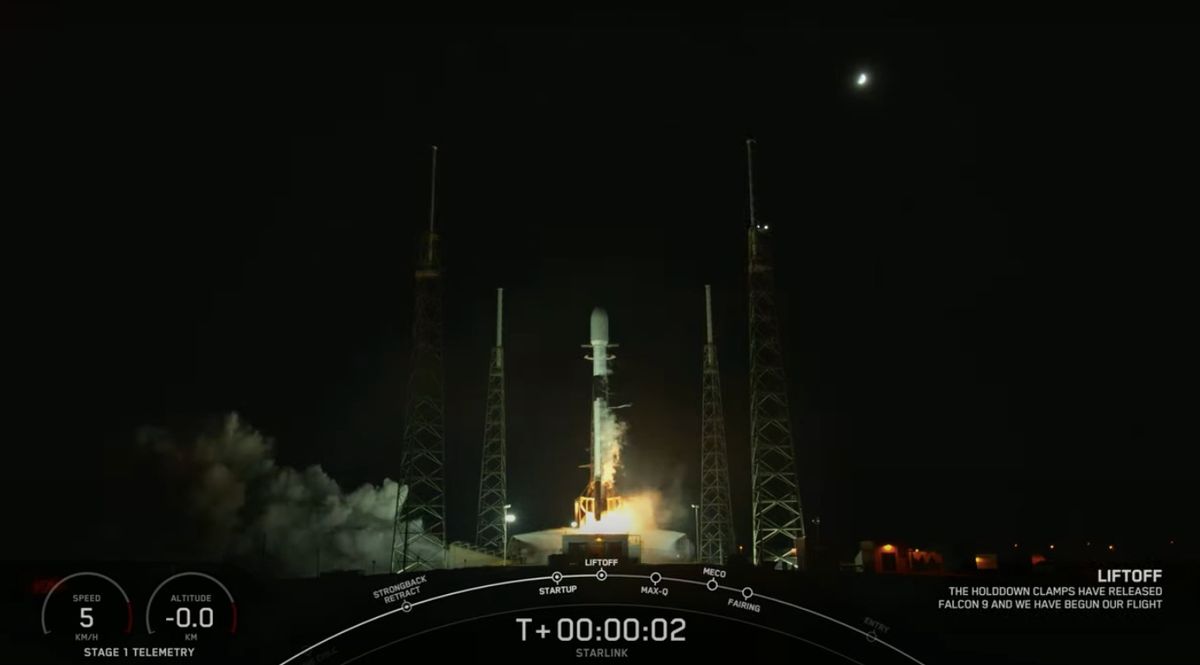SpaceX plans to launch one other massive batch of its Starlink satellites to orbit Tuesday evening (Sept. 13), and you’ll watch the motion stay.
SpaceX plans to loft 54 extra Starlink broadband satellites from Cape Canaveral Area Power Station in Florida at 10:10 p.m. EDT (0210 GMT on Wednesday, Sept. 14). You’ll be able to watch right here at Area.com, or straight through SpaceX (opens in new tab).
The flight plan requires a Falcon 9 rocket to hold the Starlink Group 4-34 satellites into space, and for the primary stage of the rocket to land on the Simply Learn the Directions droneship within the Atlantic Ocean about 9 minutes later. Will probably be the sixth launch and touchdown for this specific booster, SpaceX wrote in a mission description (opens in new tab).
Associated: SpaceX’s Starlink megaconstellation launches in photos
(opens in new tab)
Starlink is SpaceX’s broadband constellation of satellites. The corporate has lofted greater than 3,200 of the satellites into orbit up to now. SpaceX is quickly increasing the constellation, with launches taking place just about each week — and typically extra usually than that.
SpaceX CEO Elon Musk just lately mentioned he hopes to launch as much as 100 SpaceX missions in 2023. The objective is, partially, to ramp up Starlink service as quick as doable for the distant clients that the corporate desires to serve.
SpaceX already has regulatory approval to launch 12,000 Starlink satellites. The corporate has additionally utilized to a global regulator to ship one other 30,000 of the satellites into orbit.
The corporate can also be increasing the varieties of clients which might be accessing Starlink providers.
SpaceX just lately introduced a collaboration with T-Cellular to beam broadband service on to cell telephones. Moreover, SpaceX signed with Royal Caribbean to offer Starlink on cruise ships, to enhance Web service at sea.
Comply with Elizabeth Howell on Twitter @howellspace (opens in new tab). Comply with us on Twitter @Spacedotcom (opens in new tab) or Facebook (opens in new tab).




